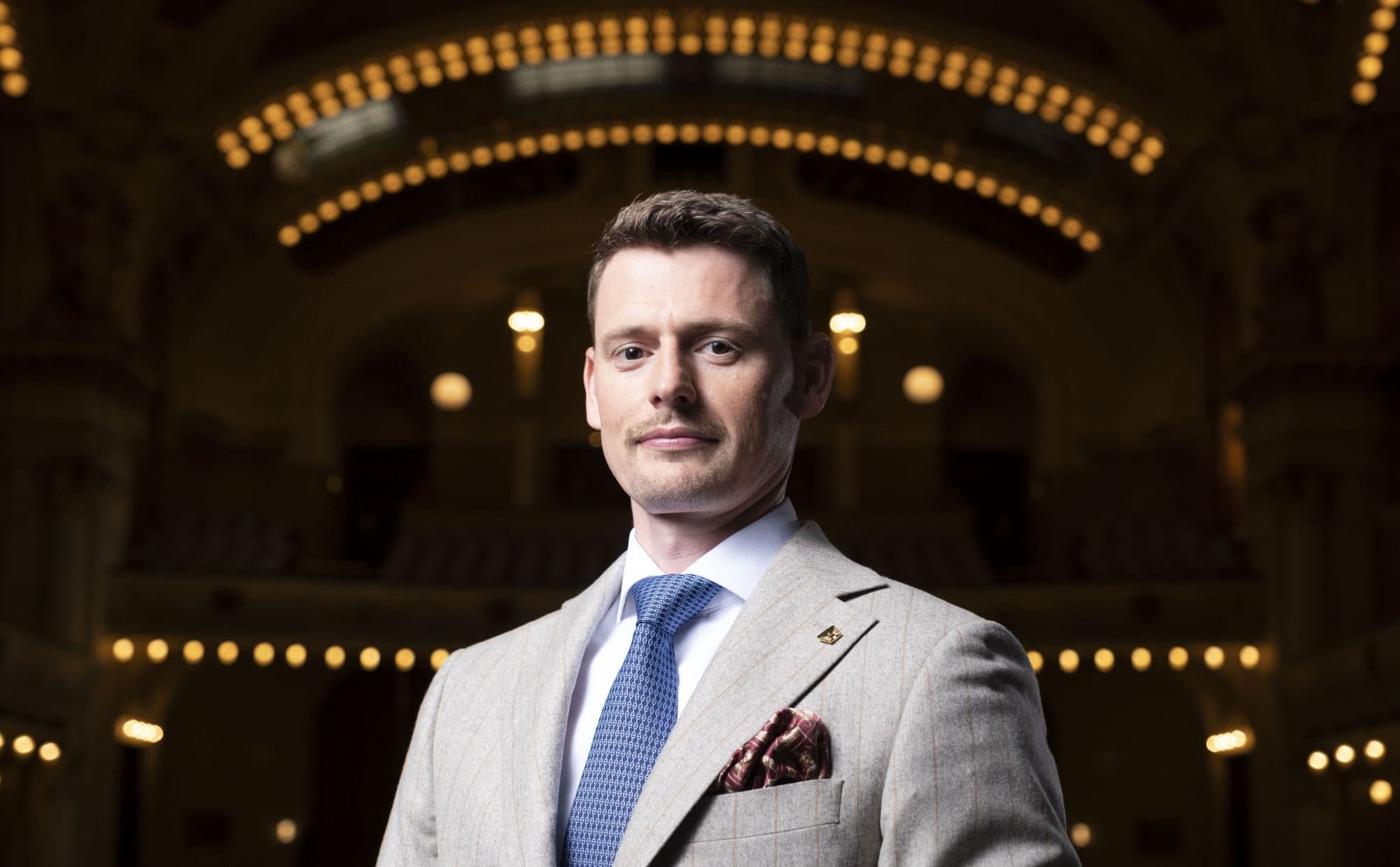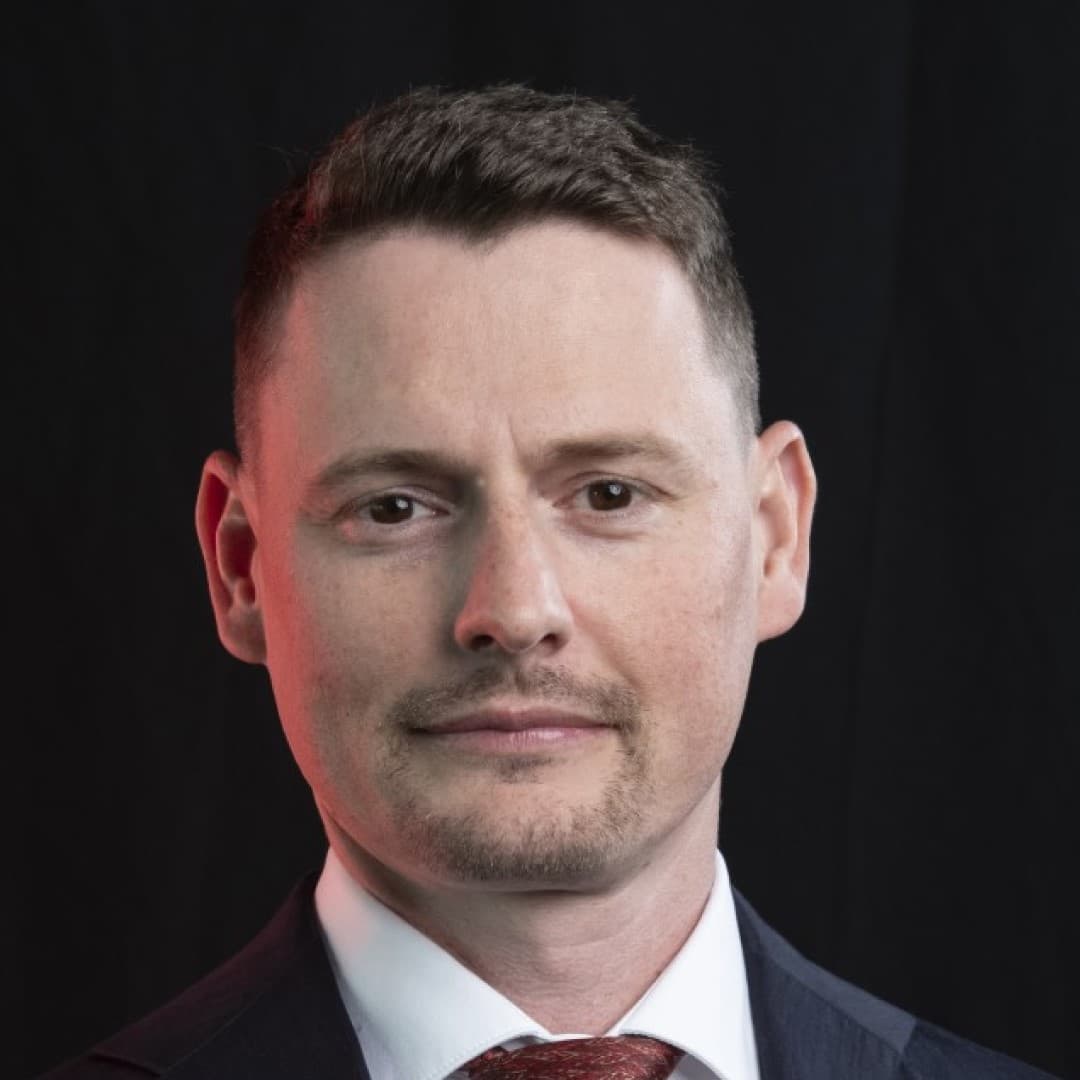Modern law is multidisciplinary. That’s why we collaborate with experts from various fields, says Jakub Hollmann from PORTOS.
05 \ 11 \ 2024

The year 2024 marks a period of major transformation for the law firm PORTOS. The most notable change has been the rebranding from the long-established name Císař, Češka, Smutný, under which the second-largest Czech law firm had operated for over 30 years. Despite the strategic shift, the firm has successfully weathered the transition, continues to strengthen its core practice areas, and on Monday was named Law Firm of the Year in three categories. Alongside Corporate Law and the Pro Bono & CSR category—areas in which it has long excelled—PORTOS also achieved success in Wealth Management. On this occasion, we spoke with Jakub Hollmann, one of the firm’s three partners, about its future direction.
Asset management is a discipline you are personally deeply involved in. What does success in this category mean to you?
First and foremost, it is a confirmation of our long-term efforts to provide clients with services of the highest possible quality. Naturally, I am pleased that this dedication is being recognized by others as well. We have been actively engaged in asset management—whether it involves trust or foundation funds—in the Czech environment for approximately the last ten years. During that time, we have managed to establish ourselves both at home and abroad, and we continue to strengthen our position. I dare say we have become leaders in this field. We gained essential experience abroad at a time when the domestic market was not even in its infancy. My colleagues and I traveled to Liechtenstein to learn, where I spent most of my time at one point. In hindsight, it was definitely worth it.
How significant is asset management in your overall practice?
It is certainly a prominent part of our practice, though if you looked at our portfolio in graphs, you’d see it as one component of a diverse array of services. Trust funds are primarily a legal and tax product, and they occupy a considerable portion of my calendar. Last year, asset management and trust law made up one-eighth of our total activities—thanks in part to our international reach. Our clients come not only from the Czech Republic and Slovakia but from many other European countries as well. Alongside corporate law and ESG activities, asset management plays a fundamental role in our practice. In this respect, you could say we are a service provider for Europe.
You mentioned corporate law, for which you also received recognition in the Law Firm of the Year awards. What does this traditional legal field involve today?
Corporate law is undoubtedly a dynamic field that is constantly evolving—just like the market itself. This demands a flexible approach and the ability to respond quickly to new situations. Accordingly, we are adapting our services to meet the demands of modern business. This includes areas such as digitalization and principles of sustainability and social responsibility. Today, Portos is not “just” a legal service provider but also a strategic advisor that helps clients navigate a dynamic legal environment and achieve their business goals. In such a role, standard legal practice is no longer enough—you need to operate within a context of multiple variables.
How are these changes affecting the day-to-day work of lawyers?
The role of a lawyer is undoubtedly evolving. Today, it’s not only about the technical aspects of law—lawyers must understand the specific nature of their clients’ industries and businesses. They are becoming partners who actively contribute to creating and implementing business strategies, helping clients to overcome challenges and seize opportunities in the market. A certain degree of multidisciplinarity is a given. Lawyers work with experts from various fields, which allows them to offer comprehensive solutions and integrated services. They can better respond to client needs, which often extend beyond purely legal matters. The traditional law firm is becoming a one-stop shop where clients can meet all their needs.
How was this reflected in the name change from Císař, Češka, Smutný?
The name Císař, Češka, Smutný carried years of work, success, and important milestones, so leaving it behind was not an easy decision. The name change represented a long-term, carefully thought-out process during which we collectively defined our ideas, values, and strategic direction for the future. It was also a creative process that naturally led to internal refinement within the firm. As part of our self-reflection, we redefined what is important to us and how we can take our client relationships to the next level. The values that underpin our work have remained the same. What has expanded significantly, however, is the scope of our services. In recent years, we have moved far beyond the traditional boundaries of a law firm. We wanted the story of our firm and what it represents to reach a new level and to demonstrate that we function as one team—under a brand that every one of our colleagues can identify with. I believe we have succeeded.
The last category you dominated—now for the eleventh time—is Pro Bono and CSR. These activities were closely associated with Pavel Smutný. What did his departure mean for these efforts?
The departure of Pavel Smutný was, of course, a great loss for the foundation and for the entire firm. His enthusiasm was key to the establishment and subsequent activities of the BHF, especially given his ability to build valuable relationships with cultural institutions. However, our efforts to support high-quality Czech culture continue and build upon past successes. One of the highlights of the year was the sculptural installation by top choreographer Jiří Kylián in front of the New Stage of the National Theatre. The installation explores the possibilities of connecting different forms of art—particularly dance and sculpture—and blurs their boundaries. The foundation symbolically adopted three of his sculptures, which capture the movement of dancers in static form. Our collaboration with the Czech National Symphony Orchestra and the Prague Proms festival also continues. Additionally, we support new projects aimed at enriching cultural life in the Czech Republic. We want to ensure that Pavel’s visions live on and that the foundation fulfills them.
We are nearing the end of 2024, a year that brought many fundamental changes to your firm. What challenges lie ahead in the coming year?
In fact, we have already started implementing our plans for next year. As part of expanding our portfolio of services, we have also grown in terms of expertise. Our team now includes new colleagues with expertise in the tax sector, specializing in structuring wealth. We will continue to strengthen our international position—not only in neighboring Slovakia, where we have significantly consolidated our standing over the past two years. We are also active in Brussels, where we successfully help a growing number of clients comply with European policies and rules, which are often ambiguous. Understanding the international context is essential for many of our clients—and, naturally, for us as well.
We are already positioning ourselves at the forefront of legal and technological innovation, and we will definitely continue down that path next year. In July, together with other firms, we established an association aiming to cultivate the use of AI in the legal environment. We are actively exploring the use of artificial intelligence in law and see ourselves as trendsetters in this area. Technology has already begun transforming our field and will soon change it beyond recognition. We expect this change to be profound—perhaps even more significant than any we have experienced over the past three decades. And we’ll be ready for it!
From the website Česká Justice




